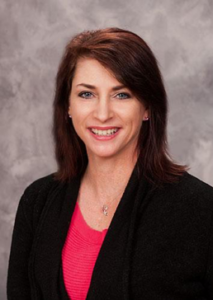
The views and opinions expressed in this piece are the author’s and do not necessarily represent the position of Positive Women’s Network – USA.
March 9, 2021
By Michelle Troxell
This word is getting lots of action in recent years. At times, not in the correct meaning of the word. I’ve seen and heard it used as a reason someone shouldn’t get help with a problem: “We want them to be empowered to do it for themselves,” “They should be empowered to do it, find the resources,” etc.
Empowerment, according to Merriam-Webster: the state of being empowered to do something: the power, right, or authority to do something. Also, from Merriam-Webster: to empower: to promote the self-actualization or influence of. And what is the definition of self-actualize? To realize fully one’s potential.
For me, to be empowered is to take back my intrinsic power. The power that I may have either voluntarily given up by not making my own decisions or power that I let myself believe was taken from me by someone or a situation. The truth is, we all have a lot more power than we give ourselves credit for. Now, I don’t know about you, but for me, I know that as a kid, I never used to listen or believe that there was anything that I couldn’t do. On my best days now, I still believe this.
However, there have been lots of times that I’ve let my confidence waver, and think things like, “Who am I to think I could that?” “Who do you think you are?” and “Maybe I should just be content with the way things are,” or, “This is going to be as good as it gets.”
While it is completely natural to have life’s ups and downs, for those of us who have a chronic health condition, the downs can seem to be with us a lot more than is necessary or healthy. To have a large number of “down” or “disempowered” days is even more common when that chronic condition also happens to be HIV.
HIV continues to be stigmatized, even though we’ve made progress in treatment and life expectancy. Today we know that a person living with HIV who is on effective treatment and has an undetectable viral load cannot transmit HIV. Fear of stigma can sometimes lead people living with HIV to keep it a secret, even from our families, and even those of us working in HIV care. The thing with stigma is that the more something is kept out of the light, the more stigmatized it becomes.
What I’ve found that has given me my power back is in finding my community: people that I don’t have to explain myself to, who have been and are in my same shoes, people that I share lived experiences with, and people who honor and nurture that shared lived experience.
I have found that there are numerous networks for people living with HIV (PLWH). I’m thinking you may have seen some of the magazines in our waiting areas, your case managers’ office, or the clinic exam rooms, like POZ, PLUS, that have articles and pictures of people educating, advocating, and fighting for the rights of PLWH.
Guess what? At one time, I kind of didn’t believe these were real people. I certainly didn’t see myself as being able to stand up like the people I was reading about. These men and women were superheroes! I did read the magazines cover to cover, however, and educated myself on what was going on in the world of HIV care, policy, and medication news. Eventually, I started to go to the websites of the groups that are in these magazines. There is a world of encouragement, acceptance, education, and leadership building that goes on within these networks. Whether you want to know more for yourself, or if you want to get involved and start to educate others. That is what empowerment is all about.
First, we learn for ourselves, second, we start to teach someone else, third, we teach another person who goes on to teach another. This is when we are advocating and empowering one another. We are all stronger together. I believe that this could be the one thing we have been missing that may get us to zero new HIV transmissions. When PLWH are more involved in every aspect of HIV care, including decision-making and oversight of fiscal responsibility, we are more invested in our care, and we bring others up with us.
We are empowering each other, standing up for what is right, our rightful place at the table. This is whole-person care. Lifting each other. Since I’ve found my home, sisters, and brothers within these organizations, when I need lifting, someone I can count on is there, no questions asked, nothing owed. And when I can return the uplifting, I do the same.
I’ve included some examples of some of the networks that I’ve been blessed to have become involved with, learned from, and to whom I give credit for helping to empower me. Lifting me when I am too tired or ill to do the heavy lifting. Getting me back on track. These groups are just a few examples of what is available, made by, because of, and for people living with HIV.
Pass it on.
@votepositivepa
References
Merriam-Webster. (n.d.). Self-actualize. In Merriam-Webster.com dictionary. Retrieved
February 17, 2020, from https://www.merriam-webster.com/dictionary/self-actualize
Merriam-Webster. (n.d.). Empowerment. In Merriam-Webster.com dictionary. Retrieved July 17, 2020, from https://www.merriam-webster.com/dictionary/empowerment


